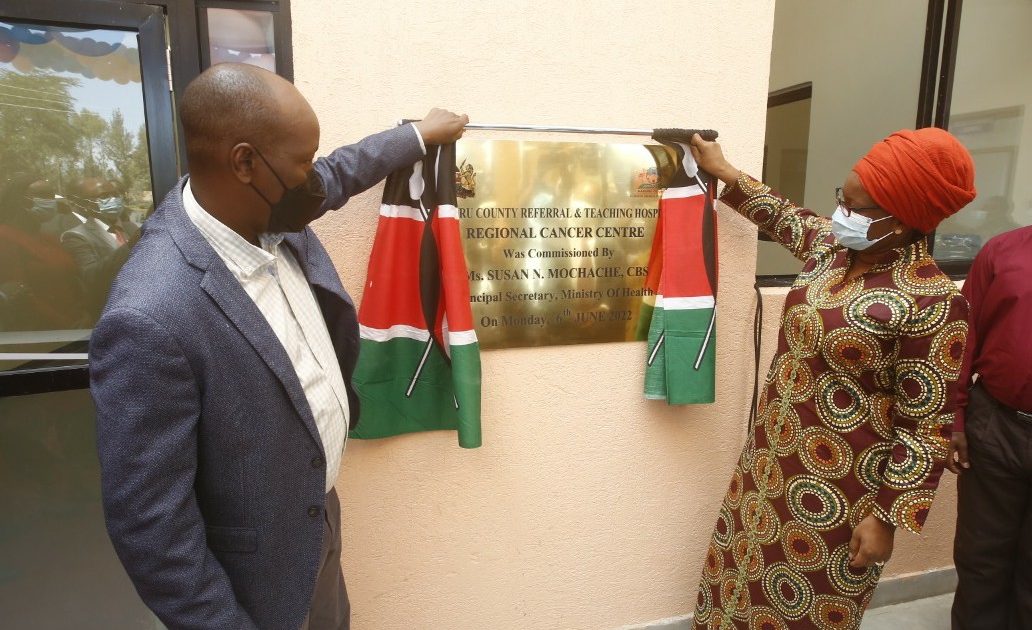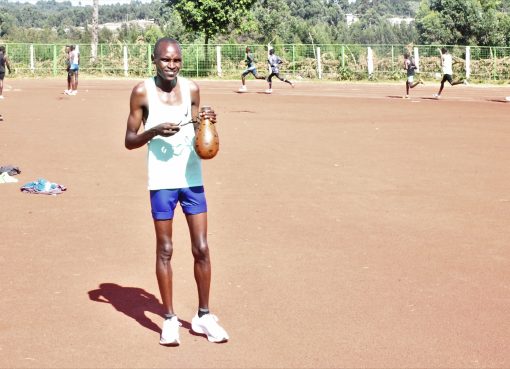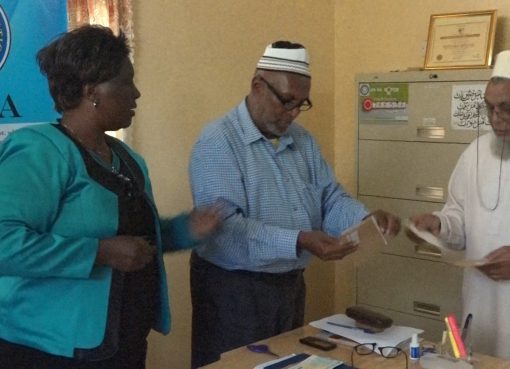Late diagnosis of cancer is fueling poverty among Kenyan households due to its exorbitant cost of treatment.
Ministry of Health Principal Secretary Ms. Susan Mochache said 70 percent of cancer patients in the country sought treatment after the disease progressed to stage 4, making it very expensive to treat.
Ms. Mochache however said the trend could be reversed if Kenyans could be on the lookout for certain symptoms that are common for cancer including an unusual lump or swelling, especially in the neck, breast, belly, or testicle, unexplained tiredness and loss of energy, ongoing pain on one part of the body, loss of appetite and unexplained weight loss, persistent coughs and abnormal bleeding.
“These signs are usually mistaken for other ailments. It is therefore important for people aged 35 years and above to screen for cancer regularly. This will enable doctors to treat cancer at its early stages. When people visit cancer centres while at stage three or four, usually the best we can do is put them into chemotherapy and radiotherapy. These are costly interventions,” said Ms. Mochache.
Speaking when she commissioned the Regional Cancer Center at the Nakuru Level 5 Teaching and Referral Hospital, Ms. Mochache observed that the disease was the third leading cause of death in Kenya after infectious and cardiovascular diseases.
Cancer, noted the PS, was now accounting for about seven percent of annual deaths in Kenya and had become the fastest route to poverty due to the expenses involved.
“The consequence of 70 percent of cancer patients being at stages three and four is that most of them fear they will die due to the cost involved. Had the disease been diagnosed at stages one or two, the treatment options available help contain the disease from further spread,” she noted.
The Sh650 million modern radiology centre has been equipped with cancer treatment equipment. It has modern brachytherapy, LINAC and CT simulator machines to treat various forms of cancer.
Patients previously had to travel to Kenyatta National Hospital in Nairobi or Moi Teaching and Referral Hospital in Eldoret for treatment.
Ms. Mochache indicated that the new treatment centre is good news for cancer patients in the South Rift region who would no longer travel to other counties for treatment.
The new facility will be a major boost to the oncology centre that has served thousands of patients since May 2018.The oncology clinic and the radiotherapy facility will now provide a one-stop centre for cancer patients.
The radiotherapy facility jointly put in place by the county and national government fulfills a pledge made by President Uhuru Kenyatta at the burial ceremony for the late Bomet Governor Joyce Laboso in 2019. President Kenyatta had said then that his government would invest more in the fight against cancer.
Ms. Mochache indicated that Kenya is taking steps to minimize cervical cancer cases by aggressively pushing for vaccination against human papilloma virus (responsible for the disease) among girls aged 10, before they become sexually active.
Every year, about 5,236 Kenyan women are diagnosed with cervical cancer and about 60 per cent of them (3,211) die, according to the World Health Organization’s latest data. The number could be more, given that many cases go unreported.
The PS stated it was disturbing that some of the women were already burdened by HIV/Aids and poverty and were caught off guard by another disease that they know little about.
“Cervical cancer is still shrouded in silence due to shame culture, lack of sex education and stigma around sexually transmitted illnesses,” she said.
Also present at the inauguration of facility were Governor Lee Kinyanjui, County Commissioner Erastus Mbui, the Nakuru Level 5 Teaching and Referral Hospital Medical Superintendent Dr Aisha Maina, Kenya Network of Cancer Organizations Executive Director Christine Mugo-Sitati and acting County Chief Officer, Health Services Dr Daniel Wainaina.
While revealing that at least 37,000 new cancer cases and 28,000 mortalities were reported in 2021, Ms. Mochache explained that breast cancer is the most common invasive cancer among women in Kenya, with more than 5,000 new cases and 2,000 deaths registered over the same period.
She added “A majority of the breast cancer patients in Kenya display the disease at an advanced stage or in its late stages, a clear indication that diagnosis is still a major challenge, and in most cases making it impossible for them to get a cure. However, this should not be the case.”
The PS observed that the Covid-19 pandemic has worsened the situation for cancer patients whose immunity system was already compromised, and urged Kenyans to go for vaccination to protect vulnerable members of the society.
She stated that the government was implementing a wide range of proven interventions to mitigate cancer prevalence. These include controlling tobacco use (responsible for 25 percent of cancer deaths), vaccinations, screening and treatment as well as implementing high-impact cancer management interventions that bring value for money and ensuring access to palliative care including pain relief.
Kinyanjui noted that according to data from the devolved unit’s health department, fewer men compared to women were checked for cancer.
While calling on Kenyans to change their perception of the disease as a death sentence, the governor asserted that most cancers were treatable if diagnosed early.
According to statistics by the Ministry of Health, the national uptake of screening stands at 16 percent.
He said there was a need to bridge the gap between screening and medication, adding that most cancer cases were diagnosed late when nothing much could be done.
“Medical staff at the Regional Cancer Center will undertake general diagnosis, care and treatment and rehabilitation of cancer patients. More residents will access the care they need,” Kinyanjui said.
He added “The facility will save them from travelling long distances and incurring costs in search of cancer treatment at national referral facilities. Patients will get access to cheap, quality and timely treatment in Nakuru.”
In 2018, Governor Kinyanjui opened an oncology centre at Nakuru Level Five Hospital, offering cancer management services, including chemotherapy, to over 40,000 people.
Last year, the Nakuru County government hired at least 295 medics to boost healthcare services in the region as the threat of Covid-19 remains.
Dr Maina encouraged parents to take their 10-year-old girls for the Human Papillomavirus (HPV) vaccine to prevent cervical cancer.
She disclosed that the cervical cancer screening services were available in all public health facilities within the devolved unit, and appealed to all eligible women to visit their nearest health facilities for screening at least once a year.
The medical superintendent advised men between 35 and 50 to go for prostate cancer screening adding that 16 hospitals and 26 health centres in the county were screening free of charge for breast, cervical and prostate .
Since the Oncology centre was established at the Nakuru Level 6 Hospital four years ago, more than 25,000 cases have been reviewed. Over 3000 have undergone chemotherapy.
By Jane Ngugi and Charloth Chepkemoi




